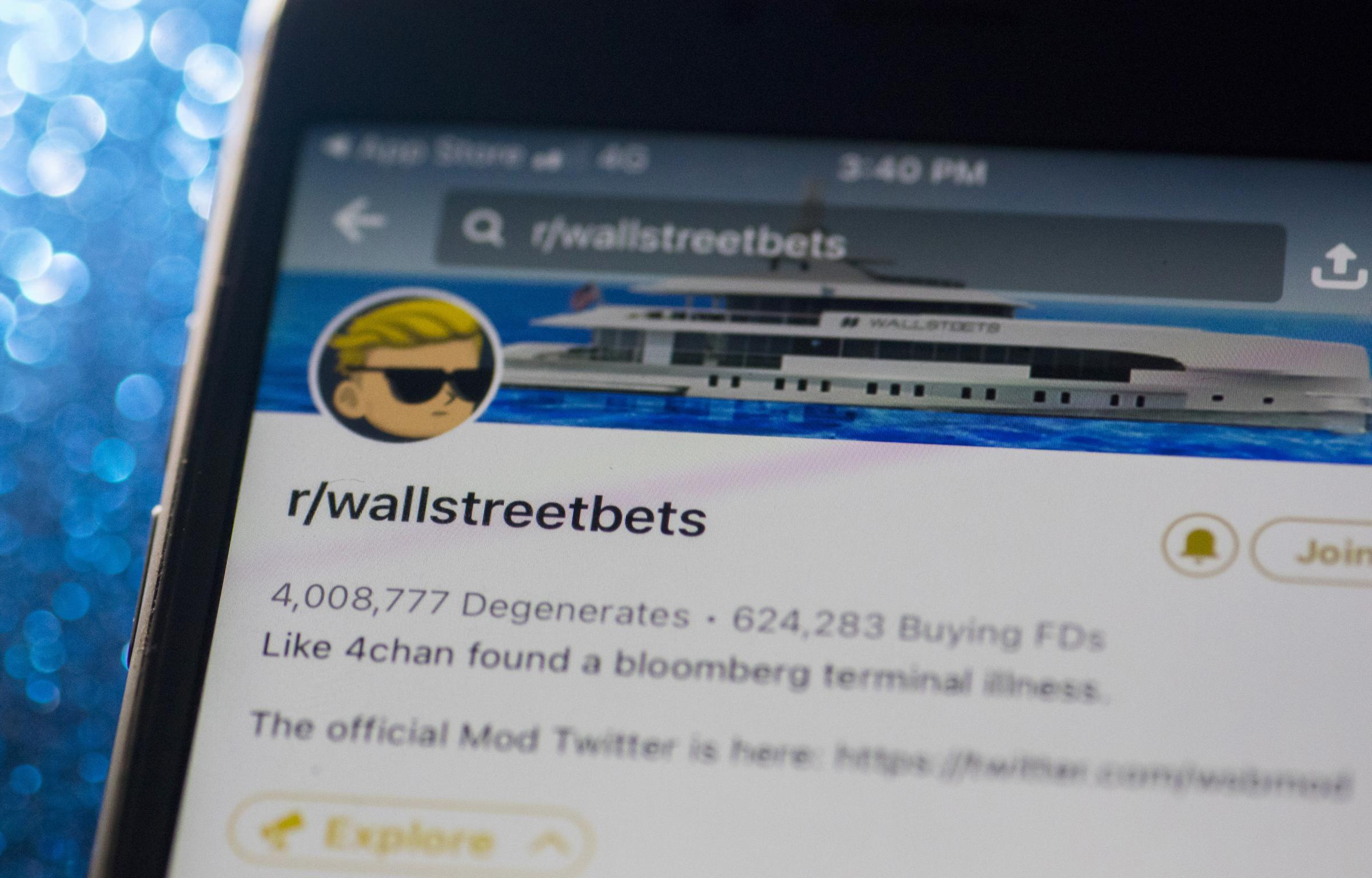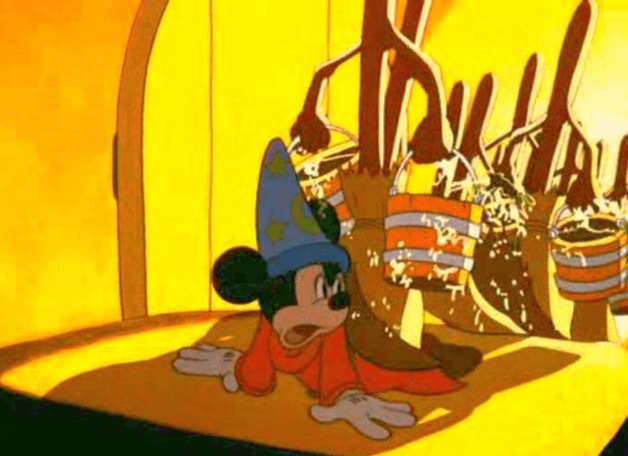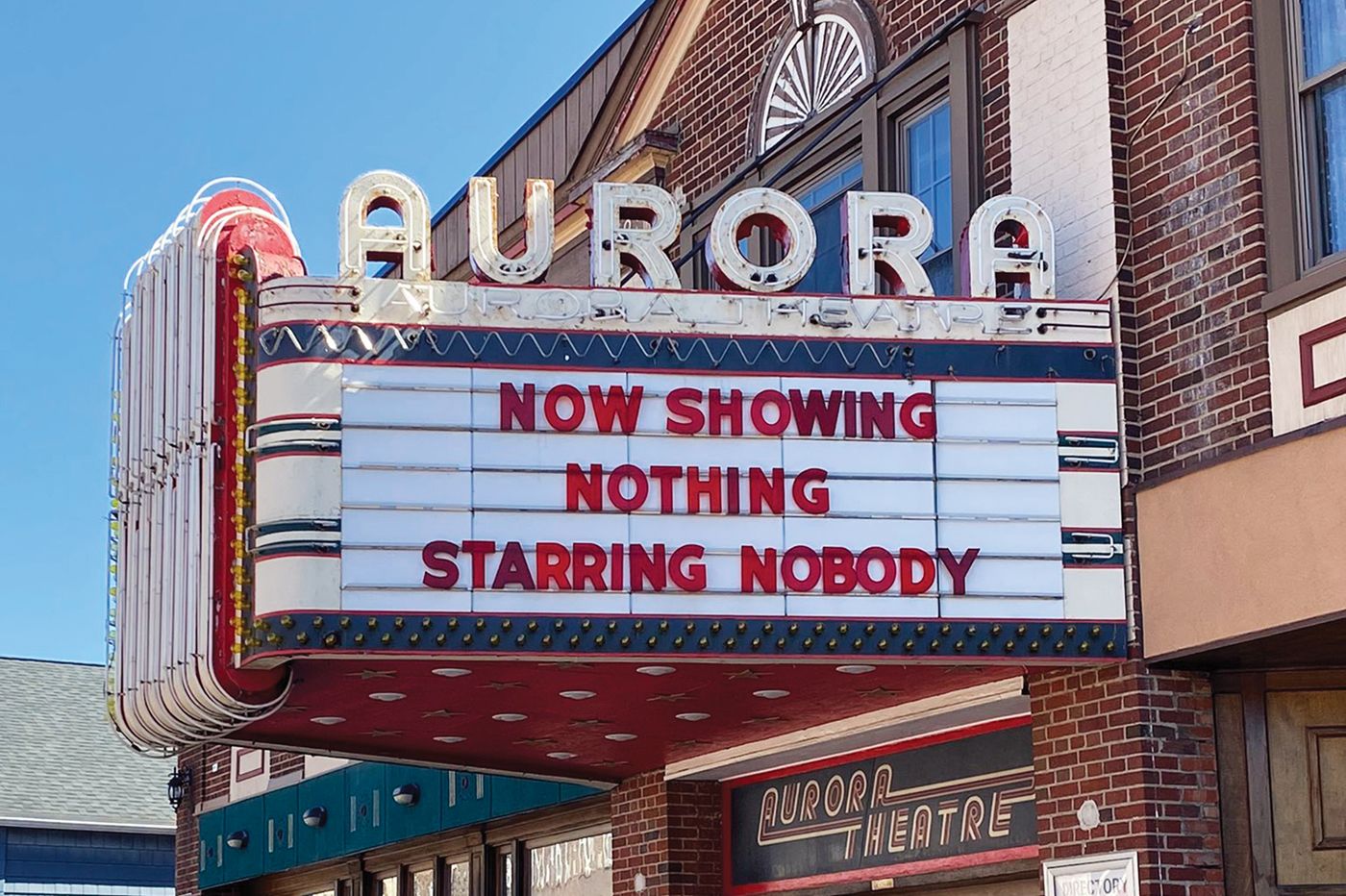New artifacts overthrow old impostures.
Stonk Up, Mask Off

r/WallStreetBets reveals the soulless face of a dying regime.
First, the story of the Sky King: In August 2018, a Horizon Airline employee with no piloting experience hijacked a turboprop from the Sea-Tac airport and flew in wild loops against the backdrop of the setting sun. He wheeled over the Olympics for an hour before crashing on an uninhabited island in the Puget Sound.
He died on impact. But in that hour, the 29-year-old Richard Russell, ordinary in every respect, became a kind of folk hero. The internet, or at least the part of it anons like me inhabit, watched in awe as he pulled off one improbable aerial maneuver after another before steering the plane into oblivion. It was an outrageous act. We saw something beautiful in this. We saw something deeply human.
Cracks in the Surface
Redditors captured national headlines last month by driving the price of GameStop stock over 14,000%, catching bearish institutional investors in a classic “short squeeze.” A spike last Wednesday drove the shares up 40% and sent the broader market into a frenzy. Everyone wanted in on the action. New “meme stocks” like AMC, Nokia, and Blackberry—hot brand names from 2005—percolated up from the online ferment to ride the tail winds of GameStop’s success. Dave Portnoy of Barstool Sports purportedly invested a million bucks in a handful of these names. Others followed. I followed. On Wednesday, 1.25 billion shares of AMC were traded, up from a daily average of about 25 million.
Suddenly everyone was an expert in gamma squeezes and options trading. The blue checks flooded the take market. Narratives began to emerge. “White supremacist neo-Nazis were targeting Jewish financiers.” This was “the Capitol siege all over again.” There were calls for the SEC to do something to regulate the speculation. Midwits decried the disconnect between GameStop’s stock price and the company’s underlying financial health. This is a perversion of market dynamics, they said. They wagged their fingers. This is not funny, they insisted. You kids better cut it out. This is illegal. You’re going to hurt yourselves. You’re going to crash the market. You’re going to lose your money. Nag. Nag.
More sympathetic narratives started to emerge as well. This was “David v. Goliath.” Main Street’s “revenge” against Wall Street. The peasants “outsmarting the robber barons at their own rigged game.” Partially true: True in the specific case of the genius architects of the GameStop squeeze; true only in the broadest sense for the rest of us. By Wednesday, Wall Street insiders were playing both sides of the trade. The dynamics of GameStop were unique and could not be duplicated in those other stocks, or at least not to the same degree.
Yet we bought and bought. On Thursday morning, the supposedly pro-small-trading app Robinhood blocked anyone from continuing to buy (though not sell) these meme stocks. Early morning “glitches” at other retail brokers allowed the exposed parties to cover their positions. But we found ways to buy more, and we held through the Thursday sell-off, and we bought more on Friday, and we hold still.
Some of us do, anyway. On Tuesday, Portnoy bailed on his position at a loss of 700K. “Paper hands” get the better of us all, at times. There is no humiliation in loss, only in cowardice. Let our own clear conscience be the judge of that.
Does Not Compute
Reddit user /deepfuckingvalue, as of close on Friday, was up $33 million on his GameStop trade. He hasn’t sold a single share. He could’ve cashed out anytime that week and walked away free and clear on the winning side of one of the greatest stock market heists of all time. But he’s still in. He wants more. He wants to see this through to the end. This is what it means to HOLD THE LINE.
This has become a mantra for the meme stock buyers. You buy and you hold. You are not cowed by the halts and “recalibrations” of exposed counterparties, the naked betrayal by Robinhood of its user base. If anything you are emboldened by these efforts. You grow stronger in your convictions. You refuse to enter stops on your trades. You do not sell at the gap-ups or on the fifteen-minute green sticks to new daily highs. You buy. You do not sell. You HOLD THE LINE.
This organic, digitally distributed coordination defies normal market psychology. The market assumes individuals will act in their own, or their clients’, singular financial interest. That’s why they are so quick to call this manipulation. That’s the only way they can process market participants cooperating with one another. A spirit of brotherhood? It must be collusion!
Brotherhood in the Arctic
Comparisons between the January 6 siege at the Capitol and the meme stock brigade on Wall Street are not altogether wrong. We are living under a regime that is in failure mode. Its gears are seizing up. In Encounters At the End of the World, Werner Herzog remarks on a penguin that has been deranged by the incomprehensible landscape of the Arctic and wanders aimlessly for hundreds of miles until it eventually exhausts itself and dies. America, confronted once again with history by the incomprehensible landscape of our digital environs, feels something like that.
It is, as far as I can tell, the plan to comfort the American people in this deranged march to our national death with an increasingly tedious iteration of bread and circuses. IPAs, designer meds, porn, and video games are enough for some, it seems, but, thank God, they do not sate us all. Say it with me: I will not eat the bugs. I will not live in the pod. The narratives we have been given to understand ourselves, to prime us to accept this debased existence, do not obtain for us all.
We do not hate ourselves. We do not hate who or what we come from. And we intend to respect ourselves enough to fight against the degenerate and malignant forces insisting we believe otherwise.
Like many others, I haven’t stopped smiling since I entered my buy orders, arm-in-arm with friends against an unblinking machinery we might yet make blink. This fight is going to create a lot of chaotic energy. It already has. The energy is not well formed, and it is as yet largely undirected. It is not irrational, but it is rash. It is going to strike out in unimaginable ways at what it perceives as adversarial to its interests. It will be pushed back. It will be, at times, defeated, suppressed, sublimated.
But it will not die. As long as the machine is working against the interests of the people, as long as it seeks to deny them their humanity, this energy will grow. The Capitol siege was an example of this. Meme stocks are an example of this. Perhaps the next target after Washington and Wall Street will be Harvard Yard. That’s my choice. But it may be elsewhere. It may be Silicon Valley. It may be Hollywood. It may be the New York Times. It may not know how to win exactly, but it knows its enemies.
Over the Edge
On Friday, a hedge fund manager went on TV to plead with the meme stock buyers to desist. He did not scold us as so many had done, but instead tried to appeal to our mutual interests. His point was that if the meme stockers succeeded in bankrupting these hedge funds, it would crash the market and then everyone would lose: Main street and Wall Street alike. This was a familiar rationale. It’s how they justified the bailouts in 2008. If we let these banks fail, they said, it all collapses.
Possibly. And maybe in 2008 that seemed reasonable to the vast majority of people. But a lot has changed in a decade, and there is simply no “mutual” overlap anymore between the interests of hedge funds and those of the rest of us. They want to continue our march toward death. We want to live—even if just for a moment. As such, threats of mutual destruction are perhaps no longer so compelling. A paradox arises: How do you win a game of chicken against a man who has already been committed by forces beyond his control to annihilation—or, in any case, against a man who sees himself that way? Who looks out to the cliff’s edge and prays for it, who in that final exalted moment, suspended mid-air, flying toward sunset, is confirmed in his conviction that it was all worthwhile?
The American Mind presents a range of perspectives. Views are writers’ own and do not necessarily represent those of The Claremont Institute.
The American Mind is a publication of the Claremont Institute, a non-profit 501(c)(3) organization, dedicated to restoring the principles of the American Founding to their rightful, preeminent authority in our national life. Interested in supporting our work? Gifts to the Claremont Institute are tax-deductible.
Playing make-believe with money comes at a very real cost.
Build your own Hollywood—or else!



